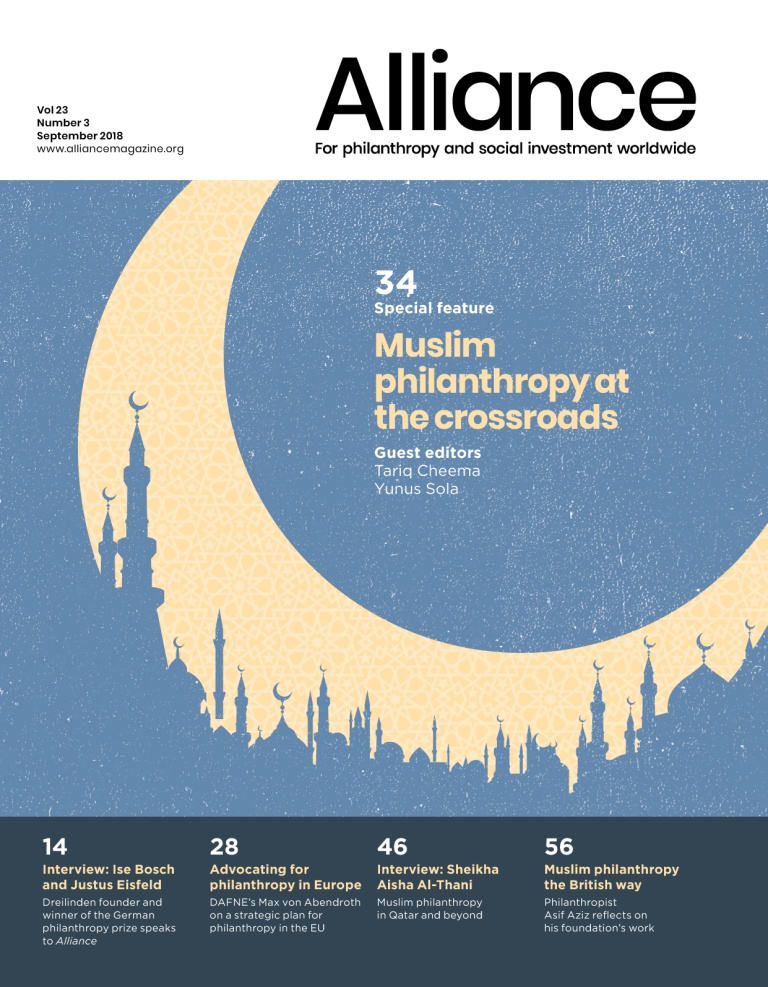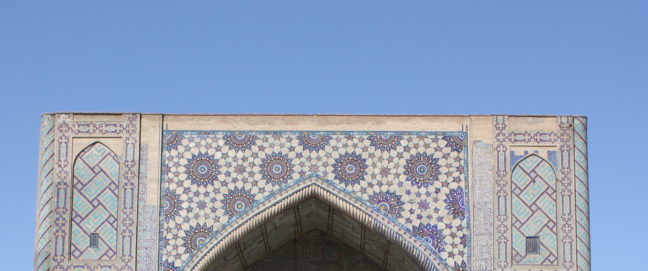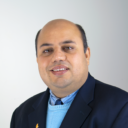A bold future beckons for the worldwide impact of Muslim philanthropy if the Islamic community has the determination to answer some urgent questions
Almost a quarter of the world’s population are giving money, charity, alms and undertaking huge philanthropy inspired by their Muslim faith. Some estimates put the value of this giving at around $1 trillion a year, though exact figures are impossible to know. Yet if Muslim giving is so generous in spirit and so massive in scale, why are these numbers just estimates? Where is the research data? Why, to the best of my knowledge, is there no specific study to confirm these estimates? Where is the data that records the social impact of this giving?
It is a paradox that Muslim communities are so generous and yet poverty, hatred, and conflict are simmering, and in some cases, increasing in Muslim countries.
In any other sector where such a volume of funds is changing hands annually, there would surely be more systematic data and research knowledge offering insight and learning to those who want to give and create change. In the absence of this data, we can only wonder: who is the $1 trillion of Muslim giving actually reaching? What impact is it having? Can it be shifted in mindset for even greater impact?
These questions are urgent because when we look at the distribution of poverty in the Muslim world, at least six of the poorest countries have a Muslim majority. According to Indian dissident and social critic Khalid Umar, these same countries foster ‘illiteracy, violence and hate-mongering’. It is therefore a paradox that Muslim communities are so generous and yet poverty, hatred, and conflict are simmering, and in some cases, increasing in Muslim countries.
As you can see in this editorial and this Alliance special feature, the World Congress of Muslim Philanthropists (WCMP) and its Global Donors Forum (GDF), which meets this year in London, is not afraid to ask hard questions about the state and status of Muslim philanthropy. Is Muslim philanthropy too often stoking and feeding the status-quo rather than addressing and building communities to tackle the deep roots of the cause? How can we move Muslim philanthropy from being individual driven, or cause driven, to being strategy driven?
What if a trillion dollars was put into one global fund every year? Forget the administrative and bureaucratic nightmare for one moment. Just imagine. This fund would become the greatest philanthropic force on the planet.
At GDF this year, we are asking and responding to some of these questions. In doing so, we are bringing together and challenging our network of donors to take even more responsibility for their giving and pushing for greater transparency, social impact and efficient delivery of resources. And how can we change the status quo so that the positive impact of Muslim philanthropy gets the attention it deserves rather than media attention being focused on terrorism and conflict? In this special feature, we have foundations, researchers and philanthropists sharing their views, their vision, and what they are doing to achieve their vision for a better world.
Imagine and dream big
While we shouldn’t be afraid of questioning, we shouldn’t fear dreaming big either. What if that trillion dollars of Ramadan and annual Muslim giving across the world was collected and channelled strategically and transparently? What if a trillion dollars was put into one global fund every year? Forget the administrative and bureaucratic nightmare for one moment. Just imagine. This fund would become the greatest philanthropic force on the planet.
What if a small group of the world’s top humanitarians and visionaries were brought together with the sole aim of eradicating poverty and illiteracy a country at a time? Imagine billions of dollars from a trillion-dollar pool one year arriving in a particular country with the long-term aim of tackling social injustice, illiteracy, poverty, disease, water scarcity, and food shortage. Imagine that process evaluated and improved and repeated in another country a year later. Of course, this is only hypothetical and intended only to serve as an example of the potential impact of this sector.
We are confident that our network – the WCMP – will continue to model change for a better society. A society that is resilient, equal, and values each other’s gender, faith, religion and race.
What’s next?
The Global Donors Forum taking place in London this month of September will bring together a group of people with grand ideas. It will launch an accelerator for entrepreneurs in the Middle East, and a special research fund to facilitate learning for better Muslim philanthropy.
These are just two examples of a much biger project. In the months and years ahead, we are confident that our network – the WCMP – will continue to model change for a better society. A society that is resilient, equal, and values each other’s gender, faith, religion and race. A society that sees one another’s humanity beyond all else.
Philanthropy is a word that means love. On these pages, and at all future gatherings of Muslim philanthropy, may we talk about love of humanity and love of philanthropy.
Yunus Sola is a co-founder of the Academy of Philanthropy, a project of the World Congress of Muslim Philanthropists.
Email: ysola@academyofphilanthropy.org
Twitter: @MuslimGiving @GlobalDonors







Comments (1)
What we learned in Palestine through the creation of the first Palestinian Community Foundation (Dalia Association) is that it's not about the money. There isn't a shortage of money but a lack of local control of the money. If donors are willing to let communities (who are the ones affected by philanthropy) to make their own development decisions, we would see a dramatic change in culture. People living in poverty and conflict would begin to see themselves as resource-rich (even if they are cash poor), as capable of making their own decisions, and as worthy of demanding their human rights. But this would require donors -- the ones who control money -- to recognize that they can't throw money at people with so much conditionality that the "philanthropy" becomes a mechanism for a new kind of oppression. And they would have to recognize that people have a right to self-determination in development. Just because some people have money doesn't mean they should decide how others live. Regardless of the intent, that's just not philanthropy to me.